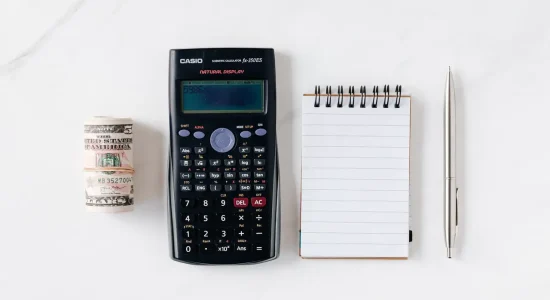Are you one of those people who lose control when they have cash in their hands? Making a budget can be your one big solution to all your money problems. Here are some tremendous benefits of a budget:
- Helps You Save Up Money
- Allows You To Track Your Expenses
- Helps You In Your Rainy Days
- Helps You Set Your Priorities
- Provides You With Financial Stability
- Assists You In Paying Off Debts
- Prepares You For The Future
- Helps You Achieve Your Financial Goals
- Makes It Easier To Manage Your Accounts
- Prevents Over Expenditure On Unnecessary Things
A budget can help you keep your expenses in check and allow you to save up money for your other long-term financial goals.
So, let’s delve deeper and see these benefits in detail, followed by the purpose and elements of making a budget.
Top 10 Benefits Of a Budget

Making a budget might just be the right answer you’ve been looking for if you have a slippery hand when it comes to cash.
The purpose of a budget can be defined in the golden words of Dave Ramsey, “A budget is telling your money where to go instead of wondering where it went.”
A budget not only helps you financially but also contributes to releasing financial stress and provides a happier outlook on life. Let’s shed some light on the benefits of a budget.
#1 Helps You Save Up Money
According to a new survey, a little over 55% of Americans do not make a budget to manage their savings and expenses. This only reiterates the importance of having a budget in your daily life.
Most Americans have less than $1000 savings in their banks.
When you have a budget in your hands, you know how much you are gonna save up and what’s the limit of your expenditures. This allows you to save up money every month and keeps your expenses in check as well — living a perfect financially minimalistic life.
If you’re spending money from the portion that you’ve allotted to savings, make sure that you adjust it in the next month’s income.
» Maybe this also could be of interest to you: 15 Examples of Businesses That Run Themselves
#2 Having a Budget Allows You to Track Your Expenses
Let’s face it, it is really hard to track expenses. Especially when you have the cash in hand and you find so many things to buy for yourself.
One great thing that making a budget does is that it limits your expenditure to a specific portion of your income.
Tracking your monthly expenses by entering your daily expenses in a spreadsheet allows you to track each expenditure and based on that, you can evaluate if it is important enough to keep or it should be cut down.
#3 It Helps You In Your Rainy Days
You’re spending your life happily until an unforeseen problem befalls you and that is when you find yourself relying on your cash and savings.
Ideally, you should be making an emergency fund and keep adding small portions of your income to that fund.
According to Bank Rate, only 39% of Americans have enough money to cover $1000 emergency expenses.
A budget can ensure proper allotment and help you keep track of the amount you’ve gathered for your rainy days.
Even though you might not think it important to have an emergency fund because you’re not directly facing the problem right now, you will be thankful for making this decision when you find yourself in unforeseen turmoil.
#4 A Budget Helps You Set Your Priorities
You prioritize the more important and immediate expenses and expect to be done with them as soon as possible.
Thus, a budget can help you set your priorities in this way.
When you’re setting priorities, think about the importance of that expense and is it really something you need or is it something you just want.
It can help clear your mind and create an effective way to plan out your expenditures.
» This could also be something for you: Is $5,000 Enough Money To Move Out? Read This!
#5 It Provides You With Financial Stability
It is very understandable that a budget provides you with savings and limits your expenditures, and one of the most valuable results of that is financial stability.
Making a budget can pave the way for you to gain financial stability because you would eventually save more and spend less and that turns out to be beneficial for you in the long term.
In this regard, Rosette Mugidde Wamambe said, “Budgeting is not just for people who do not have enough money. It is for everyone who wants to ensure that their money is enough.”
In addition to procuring financial stability, you can also relieve your financial stress by making a budget. If you make a budget and strictly adhere to it, you would feel more in control and will not spend as much money as you used to.
#6 Having a Budget Assists You in Paying Off Debts
Suppose that you took debt from someone and now you intend to return it. Do you know what would be a really efficient way to do that? You guessed it right; making a budget.
When you make a budget, you should set aside a portion of your income to repay the debt. If you keep doing that every month, you would very soon be rid of your debt.
However, you need to plan ahead and make sure that you are allocating this specific portion of the money to the debt that you need to pay off.
#7 It Prepares You For The Future
If you’ve just started off on a job and you’re trying to save money by making a budget, then you are on the right pathway.
While you may have started small, you will grow in the future, and allotting a budget to your savings is an extremely important factor for that.
More than 70% of Americans plan to work even after their retirement.
Setting up a budget would prepare you for retirement and it will always keep your finances in check.
In addition to that, setting up a budget can help you save up for any future investments that you may have in your mind.
» Read my blog post about: Is It Harder To Make Money Now? The Surprising Answer
#8 A Budget Helps You Achieve Your Financial Goals
Let’s be honest, all of us have long-term financial goals.
Whether it’s buying a car or buying a house or making a large investment in a business, we’re always striving towards that.
According to SpendMeNot, only 30% of Americans are prepared financially for the long term.
If you follow a budget, then you can effectively save money to achieve these financial goals.
#9 It Makes It Easier to Manage Your Accounts
You spent too much on something that you liked? Now you’re probably wondering if it was worth the investment. Maybe you should spend less on things from now on or maybe you’re overthinking this.
This entire cycle can be avoided if you have a budget and you’re maintaining it.
Your total expenses and savings should be recorded in your budget and based on that, you can make a decision about your expenditures.
Overall, having a budget just makes it easier for you to manage all your accounts since you’ll be able to closely track the influx and efflux of cash from your accounts and check on the expenses you need to cut.
Unfortunately, only one-third of US families set a budget — If you’re one of them, you’re missing out big.
#10 It Prevents Over Expenditure On Unnecessary Things
According to one research, an average adult in the USA spends over $1,497 every month on unnecessary things.
When you make a budget, you automatically turn towards spending less and saving more and that helps you totally circumvent the cycle of liking unnecessary expensive things and then buying them.
Having budgeted criteria for your expenditures would make it easier to understand the worth of your money and that it should be actually spent on useful things that are important.
If you make a budget, you will probably not overspend on anything and instead, you would try to cut off your unnecessary expenses.
» You can also read my post: How Much Is a 7 & 8 Figure Salary (Examples & Explanations)
What Is The Purpose Of A Budget?

The purpose of a budget is to plan your expenses in order to achieve your long-term financial goals and achieve financial stability. Whenever you’re budgeting, you should definitely consider the purpose behind your efforts. It helps put things in perspective and keeps you motivated to do the work required.
#1 To Plan The Expenses
One purpose of establishing a budget can be to plan your expenses. As discussed earlier, having a budget allows you to plan out your expenses and limits them.
This might seem harsh at the start but if you limit your expenses and choose the important ones, it can really result in long-term savings.
This essentially includes figuring out if you would buy that phone you’ve wanted for so long or save up money to repay your debts.
Remember that forming a budget is not enough, you need to adhere to it when it comes to expenses and cut off the ones that you think are not important enough.
#2 To Gain Financial Stability
Gaining financial stability should be the most important purpose of making a budget. If you think of it as a purpose, all your efforts and steps would be directed towards achieving this goal.
In order to gain financial stability, you will have to plan out not only your expenses but your savings too.
According to Federal Reserve, The average household bank balance of an American is $41,600.
This is certainly not enough to get financially stable.
But more than that, being financially stable also includes that you’ll be able to sustain yourself in an emergency situation, you’ll be able to pay off a debt, and gather some capital for your future.
To get financially stable, you should allocate a portion of your income to all of these separate portions. It might not seem like a lot in the beginning, but you’ll get there soon.
#3 To Achieve Long-term Financial Goals
If you have long-term financial goals, such as buying a car or a house, you need to be making plans and saving up for it way before.
You should allocate a budget to put savings for your long-term financial goals aside and make other uses from the rest of the income.
This would not only help you achieve your long-term financial goals but also impart you with financial stability.
What Is The Purpose Of a Budget In a Business?

The purpose of a budget in business is to plan, track and organize your expenses and profits. You need to have a proper budget in order to assess your business strategies and re-evaluate the way to improve and move forward with them.
According to a new report, 54% of small businesses have documented budgets for 2021.
A budget helps estimate your capital and revenue, and bring structure into your business, leading to better organization of the entire business.
» Read my blog post: How to Learn How to Save Money
#1 Expected Revenue
The expected revenue is basically the profit that you plan to make from your business.
You should have an idea based on your investment that how much profit you’re going to make and if you’re not generating that revenue, you can re-evaluate and figure out what you’re doing wrong.
#2 Fixed And Variable Costs
There are some fixed and variable costs that should be taken into note while forming a business budget. Fixed costs would include the expenses that are always going to be a part of your business such as rent, utility payments, etc.
Variable costs can vary based on the position of the market, for example, your product is getting more popular by the day.
Adding on these fixed and variable costs in the budget makes it seem more realistic and provides you with the entire picture.
#3 Understand The Highs And Lows
If you have gained a lot of profit from your business, you should invest it right instead of wasting it away. A budget can help you be more accountable when it comes to that.
More important is how well you manage your business in your lows. If you have made a budget and saved up money for your business, you can sustain it even in hard times.
#4 Profits And Sustainability
A budget would provide you to assess your profits and your sustainability. You should look at the budget and figure out if your business would be sustainable in the long term.
Figuring that out is important because only then you can get the motivation of making it better and you would strive to achieve that.
What Are the 5 Basic Elements Of a Budget?

The five basic elements of a budget are income, fixed expenses, flexible expenses, unplanned expenses, and savings.
Income
The income is the most basic element of a budget because when there will be income, only then you can spend the money and take out your expenses.
A good budget should contain your total income so you can structure your expenses accordingly.
Fixed Expenses
A good budget should include fixed expenses every month such as utility bills, mortgages, groceries, etc.
Flexible Expenses
While some expenses are obviously fixed, some should be flexible too. This is money you can spend to do things that you enjoy. But again, don’t go beyond the allotted budget for this.
Unplanned Expenses
Unplanned expenses are often undervalued as a component of a budget. A budget should have a portion of unplanned expenses because you can find yourself in emergency situations and this often helps in such situations.
Savings
One of the most crucial parts of allotting a budget is to put a portion of your income into your savings because spending all your money would not be a wise choice.
You should focus on saving more and spending less.
» I have covered more on this subject in this blog post: How-To Save $10,000 In A Year
Final Thoughts
While we may find it difficult to make a budget and keep a track of our expenses, a budget can really help smooth things over when it comes to long-term finances and stability.
Allotting a budget has numerous advantages and it is something all of us should actively try to incorporate into our lives.
A budget can make things easier for you, especially if you find yourself spending too much money and feel like you’re just throwing it away.
Since you have gained so much information about budgets, how about you start working on one and experience the benefits of a budget for yourself?







